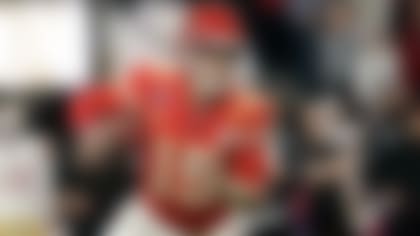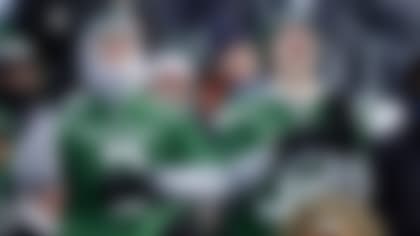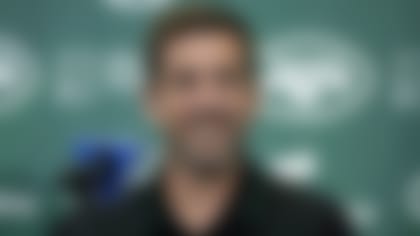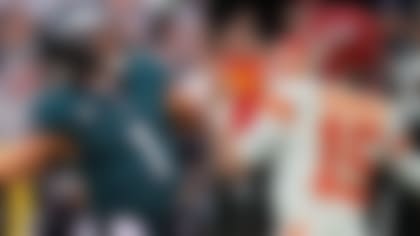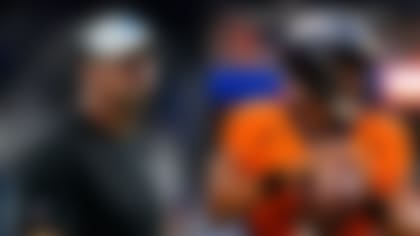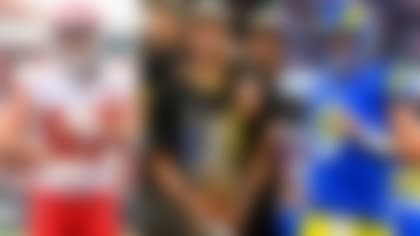The NFL announced on Friday that 22 to 27 defensive players on the New Orleans Saints maintained a bounty program during the 2009, 2010 and 2011 seasons that targeted opponents with an intent to injure. A lengthy investigation found that payments were administered by then-defensive coordinator Gregg Williams, who now serves the same role with the St. Louis Rams. At the height of this "pay for performance" program during the Saints' Super Bowl run in the 2009 playoffs, payouts might have reached a staggering $50,000.
What kind of punishment should the NFL dole out to the Saints organization, Gregg Williams and any other players/coaches involved?
In theory, the 22-27 players named should be suspended at least two games. That is, if the league truly wants to frown on this kind of practice.
Gregg Williams should receive the harshest punishment. But seeing as there's no real precedent here, how long do you punish him? Is six-to-eight games without pay too harsh? That isn't likely to happen. But once again, if the league is looking to discourage this kind of behavior, a one- or two-game suspension and big fine won't do it. Maybe the appropriate punishment lies somewhere in the middle.
Sean Payton's involvement is tougher to define. He apparently had knowledge of the situation, but his non-participation would lead one to believe he and general manager Mickey Loomis will only be fined. The Saints organization could -- and possibly should -- lose a first-round draft pick.
Whatever happens, to say this situation is regrettable would be an understatement. Is this freaking story medieval or what?
I hate to be the bearer of bad news, but it is not uncommon for teams to have a player-instituted "kitty" program that provides financial incentives for on-field performance. While most programs typically reward players for sacks, fumbles and interceptions, there have always been rumblings about payouts for big hits and knockout shots, particularly from defenders. I have been a part of teams that have maintained this incentive-based program without coaches' involvement, so I'm a bit surprised about the allegations surfacing in New Orleans, given the confidential nature of most locker rooms.
With the shocking nature of the details, I would expect the league to exact severe punishment for the coaches, including fines and suspensions. Although I don't think the punishment will stop some teams from continuing these practices, it will certainly lead players and coaches to think twice about spreading the word about "performance" bonuses outside of the locker room.
We have to wait until this shakes out a bit. But if everything holds up, I fully expect Commissioner Roger Goodell to take swift, punitive action against those involved. It's bad enough when a player -- participating in a very emotional and violent game -- loses control and goes out of his way to injure an opponent in the heat of battle (See: Haynesworth, Albert). The NFL has shown it has no appetite for that occurring, and I cannot imagine the reaction at league headquarters to this investigation, which involves players being financially rewarded for abhorrent (and premeditated) behavior.
It would not surprise me at all to see full-season suspensions handed down -- IF the details of this investigation prove true in the long run. Let's allow things to play out before we rush to judgment about the players, coaches, and front office personnel in question.
- !
- Jason Smith NFL.com
Williams should be hit with a three-year ban
I have no problem with the performance-based bounties -- for interceptions and the like. But you can't have anything remotely resembling "knockout" bonuses. The NFL isn't Rollerball. These are careers we're talking about. And the league has already made player safety a priority.
Coaches should get what players get when they fail to "Protect the Shield" -- at the least a four-game suspension. But the Williams thing is a violation that spans multiple seasons, so he should get a three-year suspension. The bottom line is he needs to know better as a coach that this is a bad idea, so he sits for as long as he ran the program. And players who are proven to have participated should get a minimum of four games and a fine.
The NFL has to come down hard on this, because how can you promote player safety when you have a coach heading up an operation that could end careers? Some defensive players are still running around unchecked, with a propensity to injure, and here's Williams flashing cash around like he's the "Million Dollar Man." Throw in the NFL's alumni fighting like hell for better benefits because of the violence in the game ... wow, how can you look those former players in the eye?
The league has attempted to curtail illegal hits over the last couple seasons, but it's time to raise the stakes.
Roger Goodell has put tremendous emphasis on player safety, and so has the NFLPA in the new labor agreement. This scandal also includes a salary-cap violation. It is clear the Saints should be penalized as an organization. Gregg Williams -- now with the St. Louis Rams -- should face the stiffest fine. Other members of the Saints organization possibly should be fined, too, but without getting the exact details I can't have a full opinion on it. The amount of punishment doled out has to be based on the history in this matter. The Saints should probably lose a second-round draft choice -- at least -- or a first if you want to say it is for multiple violations. I would definitely fine every player involved, as well.
